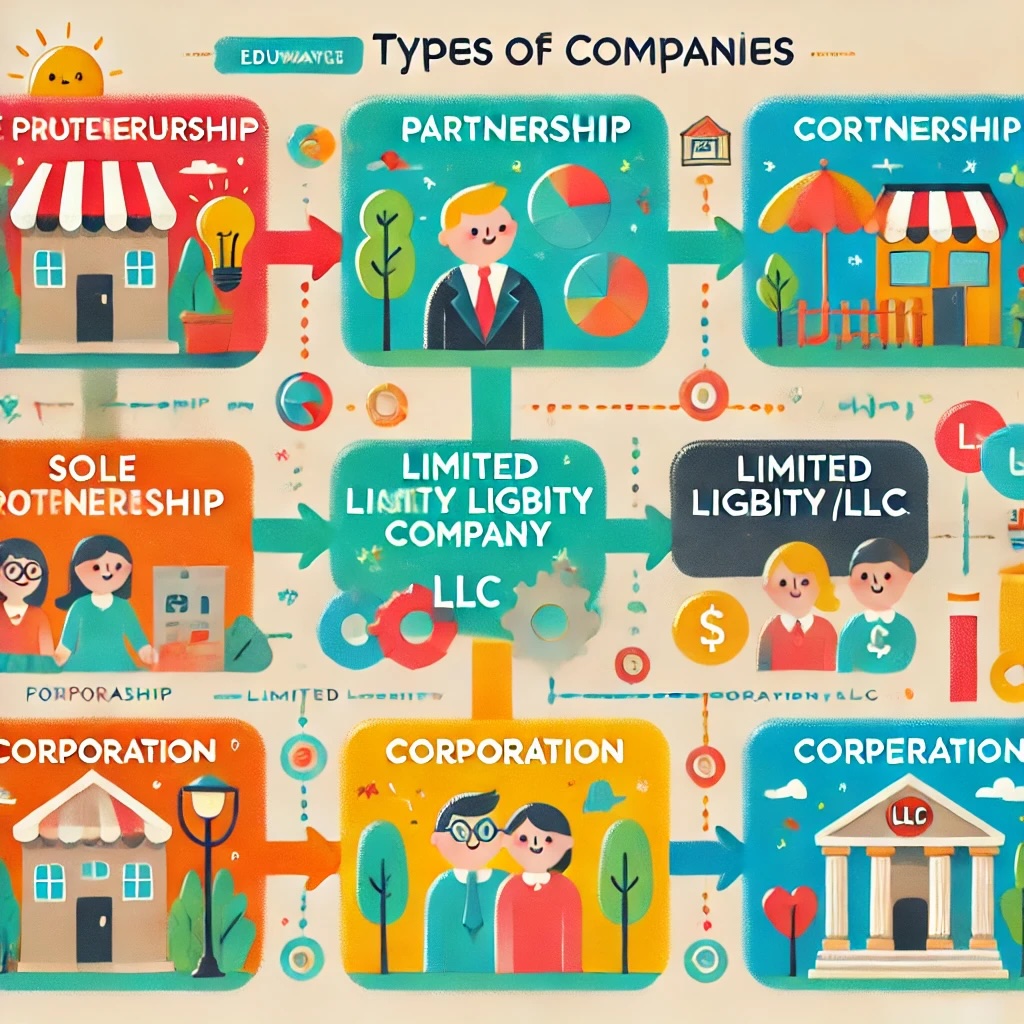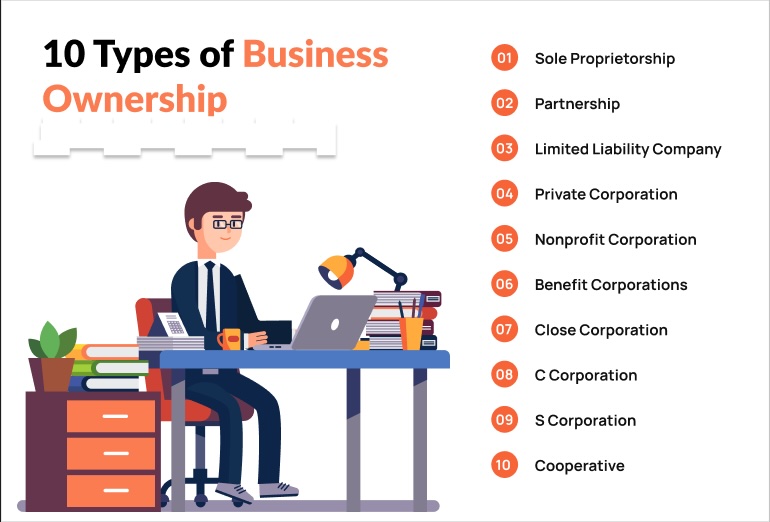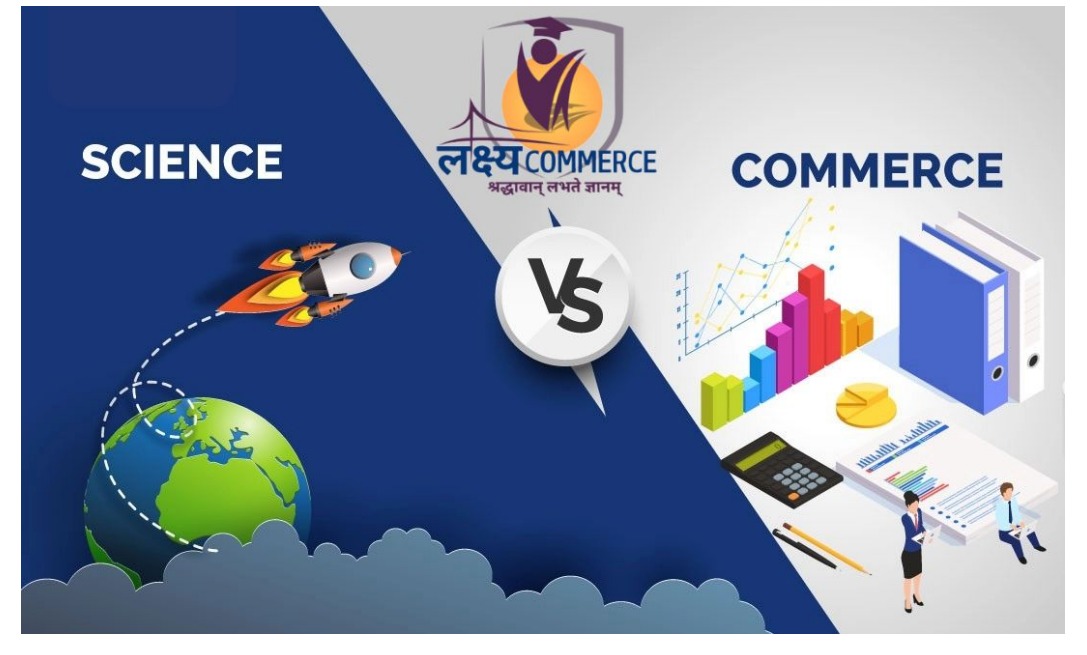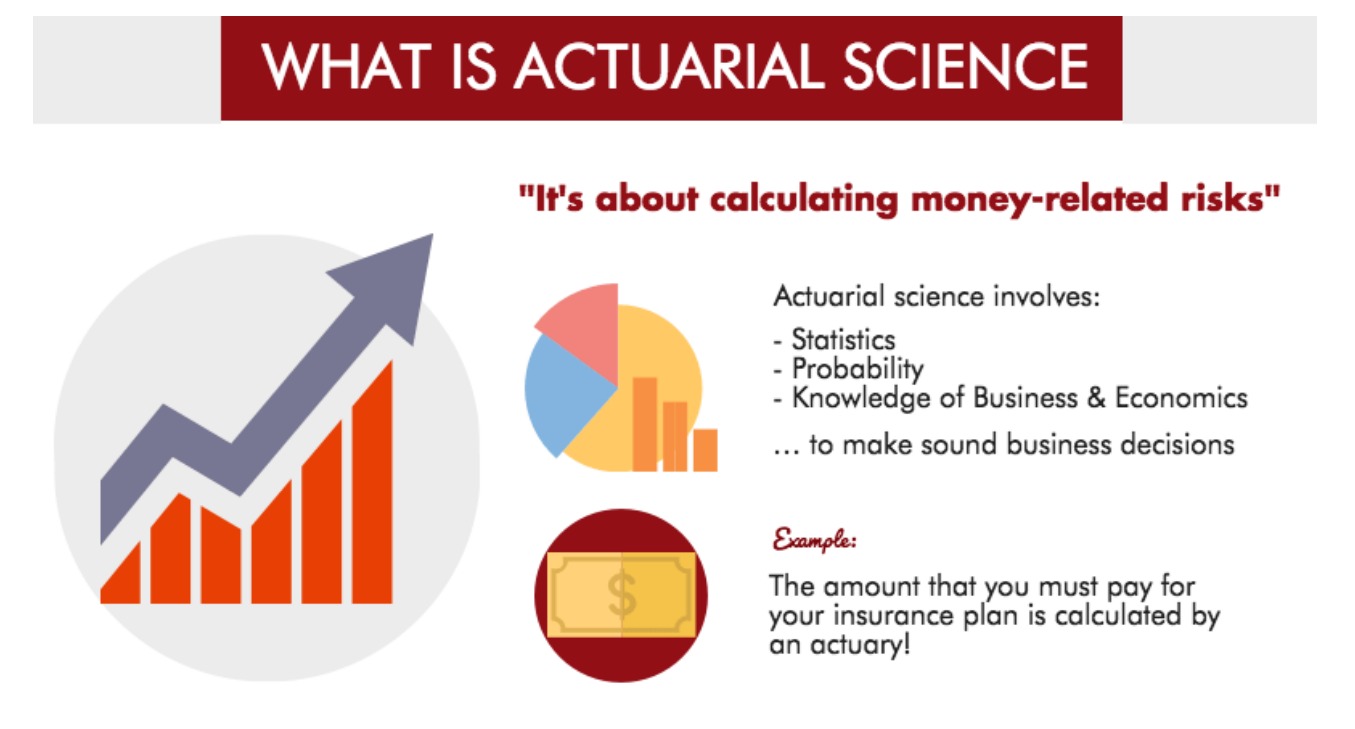Our Address
2nd Floor Poonam Villa Near Chitragupta Samaj Mandir Anishabad, PatnaEmail Us
lakshayacommerce@gmail.comCall Us
0612-3112373, 9229825249

Types of Companies
When it comes to the world of business, Companies come in all shapes and sizes, each with its own unique structure, purpose, and operating model.When starting a business or exploring the corporate world, it's important to understand the different types of companies that exist. Each type serves a unique purpose, follows specific rules, and has its own advantages and disadvantages. Whether you’re an entrepreneur looking to launch a new startup or simply curious about the structure of the business world, understanding these various company types will help you navigate the complex landscape of entrepreneurship and corporate law.
In this blog, we’ll explore the most common types of companies, from sole proprietorship to corporations, and how they differ in terms of ownership, liability, and tax implications. Whether you’re considering the right structure for your business or simply expanding your knowledge of the corporate world, this guide will provide a clear overview of your options.
There are various types of companies, each with distinct characteristics, legal structures, and purposes. Here's a breakdown of the most common types:

1. Sole Proprietorship
- Description : A business owned and run by a single individual. The owner is fully responsible for all profits, losses, and liabilities.
- Key Features:
- Simple to set up and run :- The single individual who owns and runs the business
- Owner has complete control :- The day-to-day activities such as sales, marketing, and service delivery.
- Unlimited personal liability :- The owner is personally responsible for debts (unlimited liability) but also keeps all profits.
2. Partnership
- Description: A business owned by two or more people who share profits, losses, and responsibilities.
- Key Features:
- Easy to form and run.
- Partners share responsibilities and liabilities.
- Can be a general partnership (all partners share responsibility) or limited partnership (some have limited liability).
3. Limited Liability Company (LLC) / Private Limited Company
- Description: A hybrid business structure combining elements of both partnerships and corporations. It provides limited liability protection to its owners (members).
- Key Features:
- Offers liability protection to owners.
- Flexible management structure.
- Pass-through taxation (profits and losses pass to the individual owners).
4. Corporation
- Description: A legal entity separate from its owners (shareholders), which has its own rights, privileges, and liabilities.
- Key Features:
- Limited liability for shareholders.
- More complex structure and regulatory requirements.
- Can raise capital by issuing shares.
- Types of Corporations:
- C Corporation: Subject to double taxation (taxed at both the corporate level and on dividends received by shareholders).
- S Corporation: A corporation that has elected for pass-through taxation, avoiding double taxation.
5. Cooperative (Co-op)
- Description: A business owned and operated by its members, who share the profits or benefits.
- Key Features:
- Members use the services or products provided by the co-op.
- Profits are distributed among the members.
- Often found in agriculture, retail, and housing.
6. Nonprofit Organization
- Description: An organization formed for purposes other than generating profit, typically focused on social, charitable, or educational goals.
- Key Features:
- Profits are reinvested into the organization to further its mission.
- Exempt from certain taxes.
- Must comply with specific regulations regarding fundraising and operation.
7. Public Limited Company (PLC)
- Description: A company whose shares are traded publicly on stock exchanges, often large corporations with significant market capitalization.
- Key Features:
- Can raise large amounts of capital by selling shares.
- Shares are publicly available for purchase.
- Subject to extensive regulatory requirements and reporting.
8. Private Limited Company (Ltd)
- Description: A company owned by a small group of investors and does not offer its shares to the public.
- Key Features:
- Limited liability for owners.
- Shares are not publicly traded.
- Fewer reporting requirements compared to public companies.
9. Joint Venture
- Description: A business arrangement in which two or more parties agree to combine resources for a specific project or business activity.
- Key Features:
- Can involve partnerships or corporations.
- Temporary or long-term collaboration.
- Risks and profits are shared between the parties involved.
10. Holding Company
- Description: A company created to own and manage other companies (subsidiaries) for the purpose of controlling their operations or assets.
- Key Features:
- Does not directly engage in business activities.
- Owns controlling interest in other companies.
11. Franchise
- Description: A business model where a franchisor allows others (franchisees) to operate a business using its brand, trademarks, and business model in exchange for fees.
- Key Features:
- Franchisee runs the business independently but must adhere to franchisor guidelines.
- Popular in industries like fast food, retail, and service businesses.

Each type of company offers distinct advantages and disadvantages, depending on factors like liability, tax treatment, capital requirements, and operational flexibility.Choosing the right type of company is crucial for business success. Each structure—whether a Sole Proprietorship, Partnership, LLC, Corporation, or Cooperative—has its own benefits and limitations. Entrepreneurs should consider factors like liability, taxation, ownership flexibility, and regulatory requirements before making a decision.
Ultimately, the best company type depends on business goals, industry, and long-term growth plans. Seeking professional advice from legal and financial experts can help ensure the right choice for sustainable success.







